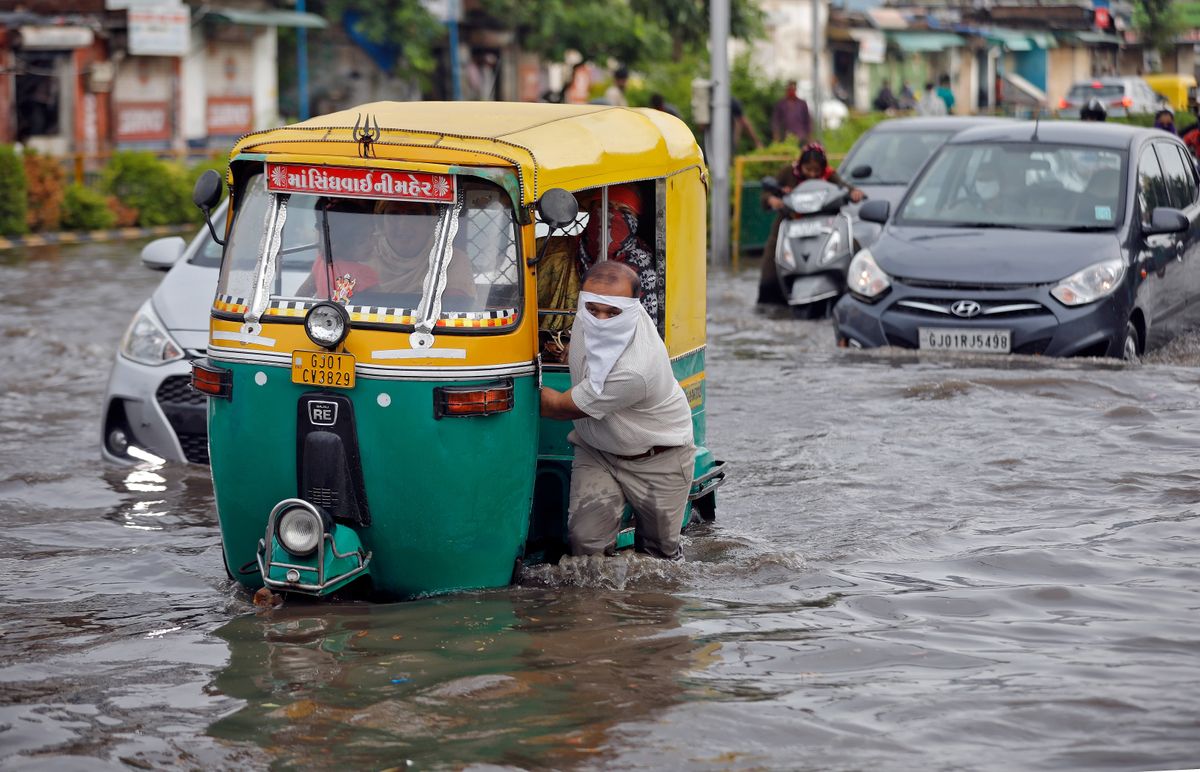South Asia under water: A deadly monsoon has pummeled large swaths of South Asia in recent days, wiping out entire villages and causing families to seek safety on rooftops in scenes reminiscent of the deadly tsunami that hit the region in 2004. Millions of people across India, Bhutan, Myanmar, Bangladesh, and Nepal have been displaced because of heavy floods and landslides — and meteorologists say these harsh weather conditions are unlikely to change in the coming weeks. So far, the state of Assam in northeast India has been hit particularly hard by flash floods, affecting some 4.3 million residents. Meanwhile, the monsoon has also devastated refugee camps in Cox's Bazar in southern Bangladesh, home to 750,000 Rohingya refugees. Every year, seasonal floods hit South Asia, causing death and destruction. But the inundations this year, the worst in decades, come as many of these countries are grappling with explosive COVID-19 outbreaks that are crippling already weak healthcare systems.
Are Russians trying to swipe COVID-19 vaccine data? The US, the UK and Canada on Thursday accused Russian hackers of trying to steal research on coronavirus vaccines. The allegation puts a spotlight again on Russian dirty tricks in Western countries, this time to unfairly benefit from a global effort to develop a vaccine in the near term. The Russian government has, as usual, denied any involvement, but the US National Security Agency has singled out Cozy Bear, a hacking group linked to Russian espionage and believed to be responsible for the 2016 cyberattack on the US Democratic National Committee server. Apart from Russia, the US previously suggested that China and Iran were trying to get their hands on the vaccine research. All this comes amid a growing debate over which countries will get it first, how doses can be distributed equitably — and even more importantly which countries finally decide to hoard the vaccine or share it with the rest of the world.
Suriname boots its criminal president: Former military dictator Desi Bouterse is finally out of power in Suriname, after losing the presidential election to opposition leader Chan Santokhi. Voters punished Bouterse — who has ruled the former Dutch colony for most of the last 40 years — for his rampant corruption, economic mismanagement and abysmal handing of the coronavirus pandemic. What's more, in 1999 he was sentenced in absentia to 11 years in jail for cocaine trafficking in the Netherlands, and just months ago to another 20 years for ordering the 1982 killing of 15 political enemies in Suriname. However, Bouterse won't end up behind bars if he stays away from the EU, and an arrest warrant has yet to be issued for his domestic conviction. Santokhi, a former justice minister and police chief, now has two priorities: reorienting Suriname's foreign policy away from neighboring Venezuela (and China) to pursue closer ties with the Netherlands, and figuring out how to avoid the "resource curse" from a major new oil discovery.






